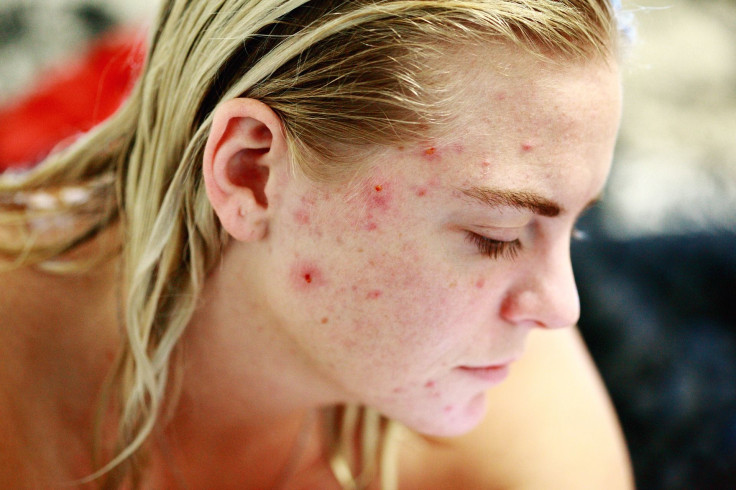Acne Problems: Scientists Say New Antibiotic Treatment Could Be A Game-Changer

For all those frustrated with acne treatments, here is some good news. Scientists say a new game-changing way to clear those breakouts is in the works.
According to the latest study, published in the journal Nanoscale, nanoparticle delivery of narasin, an antibiotic compound, could work effectively against drug-resistant bacteria that cause Acne vulgaris.
Acne vulgaris is a chronic inflammatory disorder that causes bumps and skin lesions on the face, upper arms, trunk and back. The skin condition often gets triggered during adolescence by the bacteria Cutibacterium acnes.
Certain factors such as stress, air pollution, medication and the use of oily skin care products can worsen breakouts. The condition affects around 80% of people between the ages of 11 to 30.
The treatment typically involves the use of topical acne medications that contain retinoids, salicylic acid and antibiotics. The use of antibiotics often helps to curb bacterial growth, but many of them become ineffective as the bacteria adapt.
"To improve the clinical management of this disease, there is a pressing clinical demand to develop innovative antibacterial therapies that utilize novel mechanisms. The current research aimed to discover the antibacterial efficacy of narasin (NAR), a polyether ionophore, against drug-resistant acne bacteria," the researchers wrote.
The proposed treatment involves the use of narasin as it has not yet developed drug resistance. Narasin is an antibacterial compound used to treat infections in livestock and poultry.
Researchers found that nanoparticle delivery of the compound could significantly boost the treatment as it can penetrate much deeper into the skin where the bacteria thrive. A treatment gel developed by them stayed stable at room temperature for four weeks.
The team found the treatment effective against Cutibacterium acnes when tested under laboratory conditions. They plan to test it on humans.
"Acne severely impacts approximately 9.4 percent of the world's population, mainly adolescents, and causes distress, embarrassment, anxiety, low self-confidence and social isolation among sufferers," study author Fatima Abid said. "Although there are many oral medications prescribed for acne, they have a range of detrimental side effects, and many are poorly water-soluble, which is why most patients and clinicians prefer topical treatments."



























